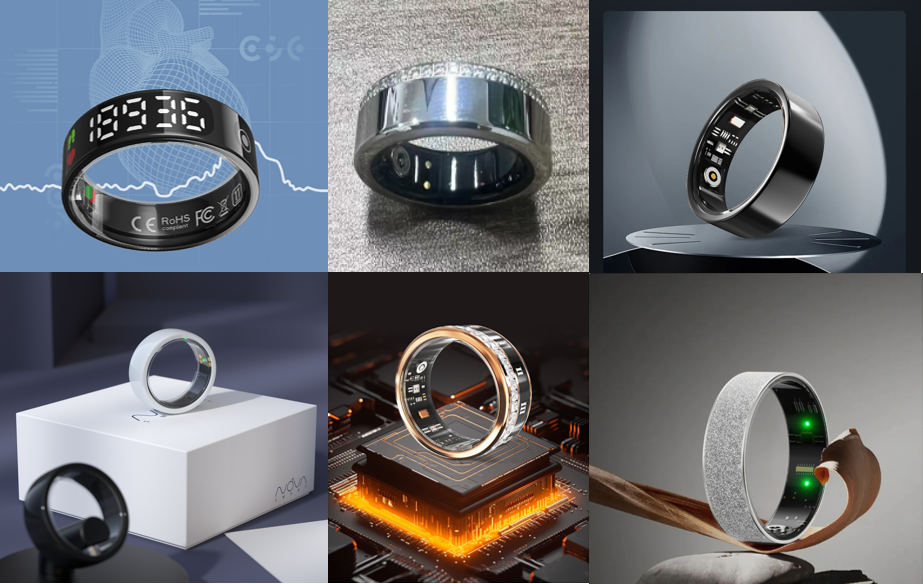AI-Powered Smart Rings: The Future of Real-Time Health Tracking
10/13/20255 min read


Introduction to AI-Powered Smart Rings
AI-powered smart rings represent a significant advancement in the realm of health tracking technology, setting themselves apart from traditional wearable devices such as smartwatches and fitness bands. These compact rings integrate sophisticated sensors and artificial intelligence algorithms to provide users with real-time health monitoring tailored to their individual needs. Unlike conventional devices, which can often be bulky and limited in functionality, smart rings offer a sleek, minimalist design that is both comfortable and unobtrusive, allowing for seamless wear throughout the day and night.
The technology behind AI-powered smart rings includes an array of embedded sensors capable of capturing various biometric data. Common functionalities encompass heart rate monitoring, sleep tracking, and fitness assessment, providing users with a comprehensive view of their health metrics. For instance, the rings can track heart rate variability, which can be an essential indicator of overall well-being and stress levels. Sleep tracking functionality reveals valuable insights into sleep patterns and quality, empowering users to make informed decisions to improve their sleep hygiene.
As health consciousness continues to rise among consumers, the trend of wearable health technology is burgeoning. Smart rings are at the forefront of this movement, offering convenience without sacrificing functionality. With advanced AI algorithms, these devices can analyze the data collected, offering personalized feedback and recommendations that cater to the user's lifestyle. This not only encourages proactive health management but also makes real-time health tracking more accessible and user-friendly than ever before. The blend of cutting-edge technology and user-driven design heralds a new era in health monitoring, making AI-powered smart rings an attractive option for those seeking to optimize their wellness journey.
How AI Enhances Health Tracking in Smart Rings
Artificial intelligence (AI) plays a pivotal role in transforming the functionality of smart rings, leading to a new era of real-time health tracking. Smart rings are equipped with advanced sensors that collect various health metrics, such as heart rate, activity levels, sleep quality, and even blood oxygen saturation. However, the true potential of this data is unlocked by sophisticated AI algorithms that can interpret and analyze the information, providing users with personalized health insights.
One of the most significant contributions of AI to health tracking in smart rings is the ability to deliver tailored recommendations based on individual health data. For instance, AI algorithms can analyze sleep patterns and suggest modifications to improve rest quality or alert users when their physical activity drops below recommended levels. This level of personalization is crucial, as it caters to each individual’s unique health requirements and promotes proactive health management.
Moreover, predictive analytics powered by AI significantly enhances the capability of smart rings to forecast potential health issues. By continuously monitoring an individual's health metrics and utilizing sophisticated algorithms, AI can identify patterns that might indicate a forthcoming health issue, such as abnormal heart rhythms or sudden changes in activity levels. This proactive approach allows users to seek medical consultation before minor issues escalate into serious health concerns.
Several case studies highlight the effectiveness of AI-driven health tracking applications in smart rings. For example, some smart rings have successfully detected early signs of arrhythmia in users, enabling timely medical intervention. These applications demonstrate how AI not only augments the functionality of smart rings but also considerably enhances users' overall health and wellness by providing real-time insights and facilitating early detection of potential health risks. As technology evolves, the intersection of AI and smart wearable devices promises an increasingly sophisticated and user-friendly approach to health monitoring.
Benefits of Real-Time Health Tracking with Smart Rings
Smart rings have emerged as a revolutionary accessory for real-time health tracking, offering numerous advantages over traditional fitness trackers and smartwatches. One of the primary benefits is the convenience and discreetness of these devices. Unlike bulkier alternatives, smart rings can seamlessly integrate into daily life without drawing unnecessary attention. Their compact design allows users to wear them anytime, whether at work, during exercise, or even while sleeping, making them a suitable choice for continuous health monitoring.
Continuous monitoring is vital, as it provides individuals with immediate access to critical health metrics such as heart rate, sleep quality, and activity levels. This information plays an essential role in early detection of potential health problems. For instance, abrupt changes in heart rate or sleep disturbances can be flagged and addressed before evolving into serious issues. With real-time data at their fingertips, users can make more informed decisions about their health and wellness.
Moreover, many users report improved fitness levels attributed to the consistent data feedback provided by smart rings. This technology enables individuals to set personalized fitness goals and monitor their progress over time. A user who has integrated a smart ring into their routine may notice increased motivation, as they visualize their accomplishments in real-time and adjust their activities accordingly. Experts also contend that having such immediate feedback can significantly enhance user adherence to fitness programs, ultimately leading to better health outcomes.
Personal testimonials underscore the transformative impact of smart rings on daily health management. Many users have shared stories of how the constant monitoring has led them to adopt healthier habits, whether that be through improved sleep patterns or increased physical activity. Overall, smart rings not only simplify the process of health tracking but also empower users by providing insights necessary for understanding and improving their personal health metrics.
The Future of Smart Rings in Health and Wellness
The evolution of AI-powered smart rings represents a significant advancement in the intersection between technology and personal health. With enhancements in artificial intelligence, these devices are anticipated to offer even more sophisticated health insights, ranging from real-time physiological monitoring to predictive analytics. By leveraging machine learning algorithms, future smart rings could provide users with personalized health advice, alerting them to potential health issues before they require medical attention. This proactive approach to health management may serve to empower users, enabling them to take control of their wellness with tangible data at their fingertips.
As technology continues to evolve, a wider acceptance and adoption of smart rings among consumers is expected. Emerging generations, particularly those that are tech-savvy, are likely to embrace the convenience offered by compact wearable devices. Beyond fitness tracking, smart rings are predicted to expand their functionalities to include stress management, sleep quality analytics, and even nutrition tracking. Such advancements will encourage collaborations with healthcare providers, populating a more integrated approach to health and wellness. For instance, partnerships between wearable technology companies and medical institutions could facilitate data sharing that enhances patient monitoring and disease management.
However, as the integration of smart rings with personal health data deepens, challenges surrounding data privacy and regulatory compliance become paramount. Users may harbor concerns regarding how their sensitive health information is utilized, necessitating clear protocols and robust security measures to ensure confidentiality. In addressing these concerns, a well-defined regulatory framework is essential, allowing consumers to derive benefits while ensuring their privacy is safeguarded.
In conclusion, as we look to the future, AI-powered smart rings are poised to become essential tools for health and wellness management. With advancements in technology and strategic collaborations on the horizon, users can expect these devices to play a critical role in enhancing their health outcomes. As this landscape continues to develop, balancing innovation with ethical considerations will be crucial in realizing the full potential of smart rings in everyday health monitoring.
